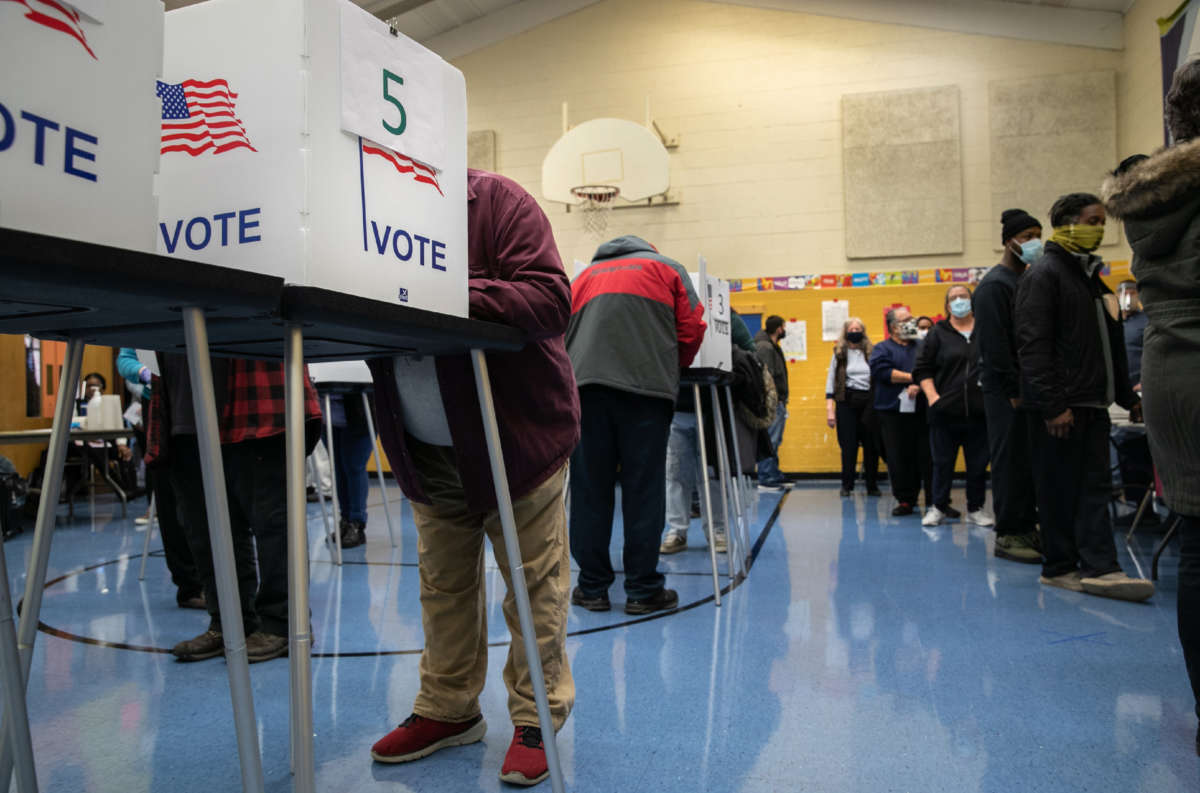An independent commission in Michigan has drafted new legislative maps that will push back against gerrymandering and give Democrats a fairer chance in elections — but some advocates say that the redrawn maps will also dilute the voting power of majority-Black districts in the state.
For decades, Michigan has been split politically but dominated by Republicans in the state legislature, making it one of the most gerrymandered states in the country. Despite Democratic Party candidates winning numerous statewide elections since the mid-1980s, the state Senate has been controlled by the Republican Party since 1984.
In 2018, for example, Sen. Debbie Stabenow (D-Michigan) won re-election with more than 52 percent of the vote — but Republicans still retained control of the state Senate, winning nearly 58 percent of seats that were up for grabs that year. Such crossover voting, where voters select candidates from opposing parties in separate elections, is possible but highly unlikely.
However, because of the redrawn maps designed by a nonpartisan commission, state Senate races will be much more competitive going forward — and according to an analysis from The New York Times, Democrats in Michigan now have a “fighting chance” to win control of the Senate for the first time in nearly four decades.
Michigan Republicans have been able to maintain control of at least one chamber in the state’s legislature for so long because the party has been in charge of redrawing legislative maps every 10 years. But in 2018, a citizen-driven ballot initiative passed that required a nonpartisan commission to redraw the maps going forward, rather than the party in power. The initiative was supported by more than 61 percent of voters that year.
The commission is required to have four Republicans and four Democrats on its panel; the remaining five members must be members of a third party or have no party affiliation. For a map to be approved by the commission, at least seven of its members (including two Republican members and two Democratic members) must agree on what has been drafted.
Many voting rights advocates praised the redrawn maps for making elections more competitive. The maps show that “Michiganders can come together across party lines to defend democracy — an important lesson for our nation and a reason to celebrate,” read a statement from Voters Not Politicians, the group that was behind the 2018 ballot initiative.
“Michigan’s a jump ball, and this is a jump-ball map,” said Michael Li, a senior counsel at the Brennan Center for Justice who specializes in redistricting issues. “There’s a lot of competition in this map, which is what you would expect in a state like Michigan.”
But others noted that majority-Black districts in the state — specifically districts in the Detroit area — would see their voting power diluted under the redrawn maps.
In an op-ed for The Detroit News, Democratic state Sen. Adam Hollier, who represents a district in the city, noted that “the commission’s recently submitted maps miss the mark” by going “from 17 majority-Black districts to zero for state House, state Senate and congressional districts.”
In an interview with the The New York Times, Hollier suggested that the nonpartisan commission produced maps that were biased against his constituents and voters in nearby districts.
“The goal of creating partisan fairness cannot so negatively impact Black communities as to erase us from the space,” he said.
A terrifying moment. We appeal for your support.
In the last weeks, we have witnessed an authoritarian assault on communities in Minnesota and across the nation.
The need for truthful, grassroots reporting is urgent at this cataclysmic historical moment. Yet, Trump-aligned billionaires and other allies have taken over many legacy media outlets — the culmination of a decades-long campaign to place control of the narrative into the hands of the political right.
We refuse to let Trump’s blatant propaganda machine go unchecked. Untethered to corporate ownership or advertisers, Truthout remains fearless in our reporting and our determination to use journalism as a tool for justice.
But we need your help just to fund our basic expenses. Over 80 percent of Truthout’s funding comes from small individual donations from our community of readers, and over a third of our total budget is supported by recurring monthly donors.
Truthout has launched a fundraiser to add 500 new monthly donors in the next 10 days. Whether you can make a small monthly donation or a larger one-time gift, Truthout only works with your support.
